David Wilkins, Harvard Law School Vice Dean, delivers Dr. L.M. Singhvi Memorial Lecture at JGU
15/04/2024 2024-04-15 15:31David Wilkins, Harvard Law School Vice Dean, delivers Dr. L.M. Singhvi Memorial Lecture at JGU
Inside JGU
March 2024
- JGU sets world record for largest human waving of national flag
- JGU invited to join Worldwide Universities Network
- Tushar Mehta, Solicitor General of India, delivers Justice P.N. Bhagwati Memorial Lecture at JGU
- David Wilkins, Harvard Law School Vice Dean, delivers Dr. L.M. Singhvi Memorial Lecture at JGU
- JGU organises G20 Conclave
- JGU hosts Ram Madhav in Capital Talks Lecture Series
- JIBS conducts masterclass, training programmes
- CLIP organises faculty development workshop
David Wilkins, Harvard Law School Vice Dean, delivers Dr. L.M. Singhvi Memorial Lecture at JGU

Professor David B. Wilkins, Lester Kissel Professor of Law and Vice Dean, Harvard Law School, delivered at JGU on March 22 the 9th Dr L.M. Singhvi Memorial Lecture on ‘The Future of the Legal Profession in the Age of ESG, ChatGPT, and Gen Z – and What it Means for Your Career’. The lecture is an annual series organised by Jindal Global Law School (JGLS) of JGU in memory of Dr. L.M. Singhvi, a multifaceted personality and a jurist par excellence, who made yeoman services to society as a statesman, diplomat, writer and lawyer. Dr. Abhishek Manu Singhvi, Senior Advocate, Supreme Court of India and Member of Parliament, had instituted the Singhvi Endowment at JGU.
In his address, Professor Wilkins said: “The key thing that lawyers need to do is to have a more digital and data driven approach to risk. They need to quantify risk, because people are anxious over growth and are willing to invest in technology, but only to the extent that technology produces a more digital approach. This creates tremendous opportunities for lawyers who serve organisations. Lawyers themselves have to embrace new technology.
“Digital transformation will influence situations and there will be more blurring of traditional categories of organisations which will be increasingly intertwined between the public and private, global and local. What we need to do is integrate law and legal knowledge with knowledge of politics, humanities, technology and economics to help solve complex problems that organisations face. This requires us to embrace a new paradigm of lawyering. Less than a year or so ago, no one had ever heard of chatbots. Now that is all everybody is talking about. And they are doing it because chatbots in the United States passed the bar exam. You could become a certified lawyer. It’s scary. It passed the medical exams! It is estimated that ChatGPT and other tools could replace the equivalent of 300 million jobs, around a quarter of all jobs in the US and Europe could be automated. However, it may lack empathy, creativity and judgment for essential kinds of work. Therefore, ChatGPT may need human supervision and guidance to ensure its outputs are accurate, ethical and compliant with law.
“There are firms in the US creating their own AI tools to help prepare lawyers for litigation. Once it is developed, it going to sell as software, as a solution to other law firms and to clients. Microsoft has already invested in a year something like $12 billion on Artificial Intelligence. So, it’s both going to replace legal jobs and also create a lot of legal jobs for people to figure out issues like ethics, intellectual property, ownership of data, etc. and it’ll always be controversial.”
Prof David B. Wilkins remarked, “Law is central to democracy, which means there’s always going to be an understanding about regulation in the public interest. With new laws comes the need for new lawyers, or at least lawyers with new kinds of skills. The world has been living through three inter-related crises: a global public health crisis, global economic and political crisis, and sustainability crisis. In order to overcome these crises, we have to think of law as a collaborative discipline, a site of interdisciplinarity, in which people from all disciplines join hands to create integrated solutions to problems.”
Speaking on the occasion, Prof. (Dr.) C. Raj Kumar, Founding Vice Chancellor of JGU, remarked, “Prof David B. Wilkins is a great source of inspiration to me personally and has mentored many individuals at JGU and delivered several key lectures and talks. The theme of his lecture discussing the future of legal profession and the impact of AI and technology in shaping the future is critical and central to many debates and discussions relating to reforms in the legal sector. Professor Wilkins has been a long-term supporter and friend of JGU and he was also present at its founding in 2009. Professor Wilkins is a distinguished scholar and a prominent public intellectual whose work in the field of law is renowned globally. As a scholar he is passionately committed to the strengths of India and is conscious that of 1.5 billion Indians, nearly 1 billion are under the age of 35 and will be instrumental in shaping not just the future of India but that of the world.”
Click here to read more.
